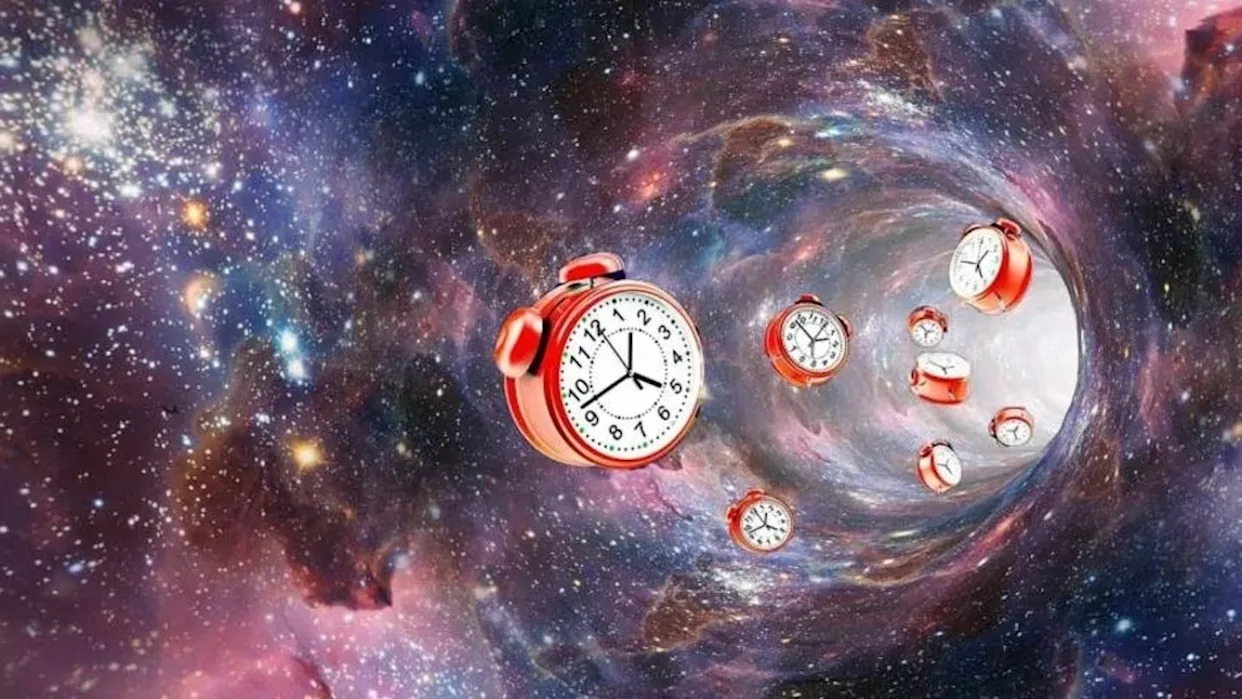Science
Astrophysicist Explores the Reality of Time Travel Possibilities

The possibility of time travel has long fascinated both scientists and the public, with many wondering whether it could transcend the realm of science fiction. In a recent exploration, Adi Foord, an astrophysicist at the University of Maryland, Baltimore County, delves into the scientific principles surrounding this intriguing concept, addressing whether moving between different points in time is achievable.
The fundamental question of time travel hinges on whether time itself can be reversed. According to the second law of thermodynamics, the universe tends towards disorder over time. This principle implies that, akin to scrambled eggs that cannot be returned to their original form, the universe cannot revert to a previous state. Thus, time might only flow forward, resembling a one-way street.
Einstein’s Theory and Time Dilation
The work of physicist Albert Einstein provides a different perspective on time, suggesting that it is relative. His theory of special relativity indicates that time can pass at varying rates depending on speed. For instance, an individual traveling in a spaceship near the speed of light—approximately 1,079,252,848.8 km/h—would experience time at a slower rate than someone on Earth. Although current spacecraft do not approach light speed, astronauts aboard the International Space Station travel at around 28,000 km/h, which can lead to measurable differences in aging.
Scott Kelly, an astronaut who spent 520 days in space, has experienced this phenomenon firsthand. After his extended mission, he is now 6 minutes and 5 milliseconds younger than his twin brother, Mark Kelly, who remained on Earth.
Some scientists are investigating theoretical frameworks that might permit time travel, such as the concept of wormholes. These hypothetical tunnels in space could potentially offer shortcuts across the universe. If a wormhole’s two ends could be manipulated—one moving close to the speed of light—it might allow for travel between different time periods. Yet, as of now, no evidence of wormholes exists, and the challenges of safely transporting humans through such constructs remain daunting.
Paradoxes and Theoretical Implications
The idea of time travel raises significant paradoxes, with the grandfather paradox being one of the most well-known. This thought experiment posits that if someone were to travel back in time and prevent their grandparents from meeting, it would create a contradiction: if they were never born, how could they have traveled back in time? Such puzzles illustrate the complexities and unresolved questions surrounding time travel.
In a unique approach to exploring these concepts, Stephen Hawking once organized a dinner party with invitations sent out only after the event had occurred, hoping to attract future time travelers. His conclusion, that no one appeared, supports his assertion that time travel is unlikely. As he famously remarked, “The best evidence we have that time travel is not possible, and never will be, is that we have not been invaded by hordes of tourists from the future.”
Interestingly, astronomers possess a form of time travel through powerful telescopes. By observing distant stars and galaxies, they are effectively looking back in time. Light from these celestial bodies takes millions to billions of years to reach Earth, meaning that when scientists view them, they are seeing them as they were in the past. The James Webb Space Telescope, for example, is examining galaxies that formed shortly after the Big Bang, approximately 13.7 billion years ago.
While the prospect of building time machines akin to those seen in films remains distant, ongoing research continues to probe the boundaries of our understanding of time and space. For now, the allure of time travel persists through literature and cinema, capturing the imagination and curiosity of many.
As questions about time travel continue to intrigue, the pursuit of knowledge in this area highlights our desire to understand the universe and our place within it. The exploration of such concepts not only fuels scientific inquiry but also enriches our cultural narratives surrounding time and existence.
-

 Lifestyle3 months ago
Lifestyle3 months agoLibraries Challenge Rising E-Book Costs Amid Growing Demand
-

 Sports3 months ago
Sports3 months agoTyreek Hill Responds to Tua Tagovailoa’s Comments on Team Dynamics
-

 Sports3 months ago
Sports3 months agoLiverpool Secures Agreement to Sign Young Striker Will Wright
-

 Lifestyle3 months ago
Lifestyle3 months agoSave Your Split Tomatoes: Expert Tips for Gardeners
-

 Lifestyle3 months ago
Lifestyle3 months agoPrincess Beatrice’s Daughter Athena Joins Siblings at London Parade
-

 World3 months ago
World3 months agoWinter Storms Lash New South Wales with Snow, Flood Risks
-

 Science3 months ago
Science3 months agoTrump Administration Moves to Repeal Key Climate Regulation
-

 Science2 months ago
Science2 months agoSan Francisco Hosts Unique Contest to Identify “Performative Males”
-

 Business3 months ago
Business3 months agoSoFi Technologies Shares Slip 2% Following Insider Stock Sale
-

 Science3 months ago
Science3 months agoNew Tool Reveals Link Between Horse Coat Condition and Parasites
-

 Sports3 months ago
Sports3 months agoElon Musk Sculpture Travels From Utah to Yosemite National Park
-

 Science3 months ago
Science3 months agoNew Study Confirms Humans Transported Stonehenge Bluestones









